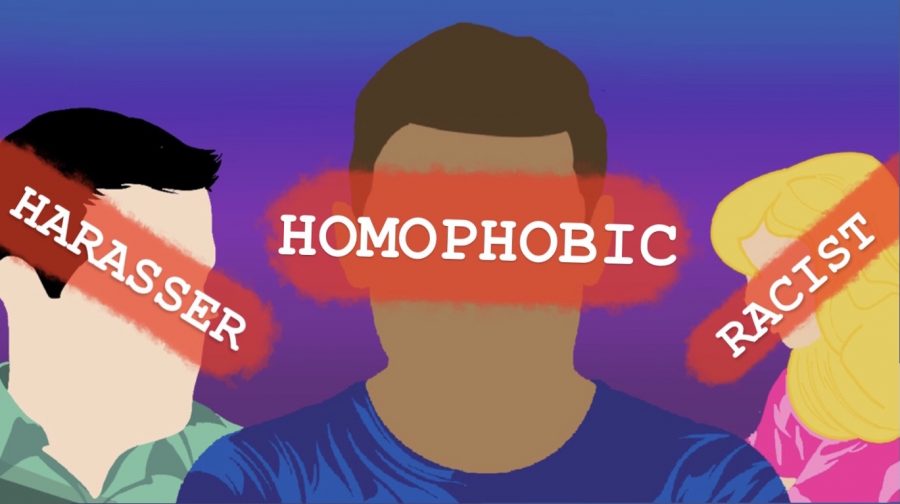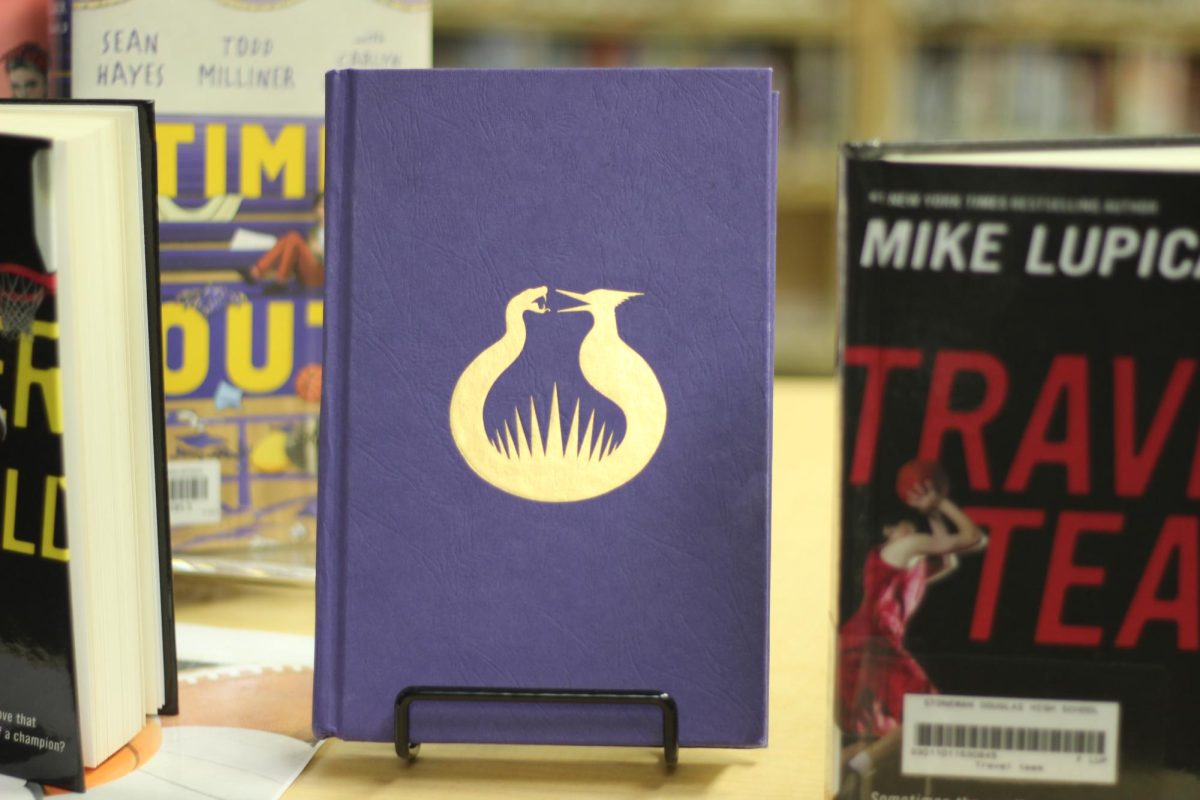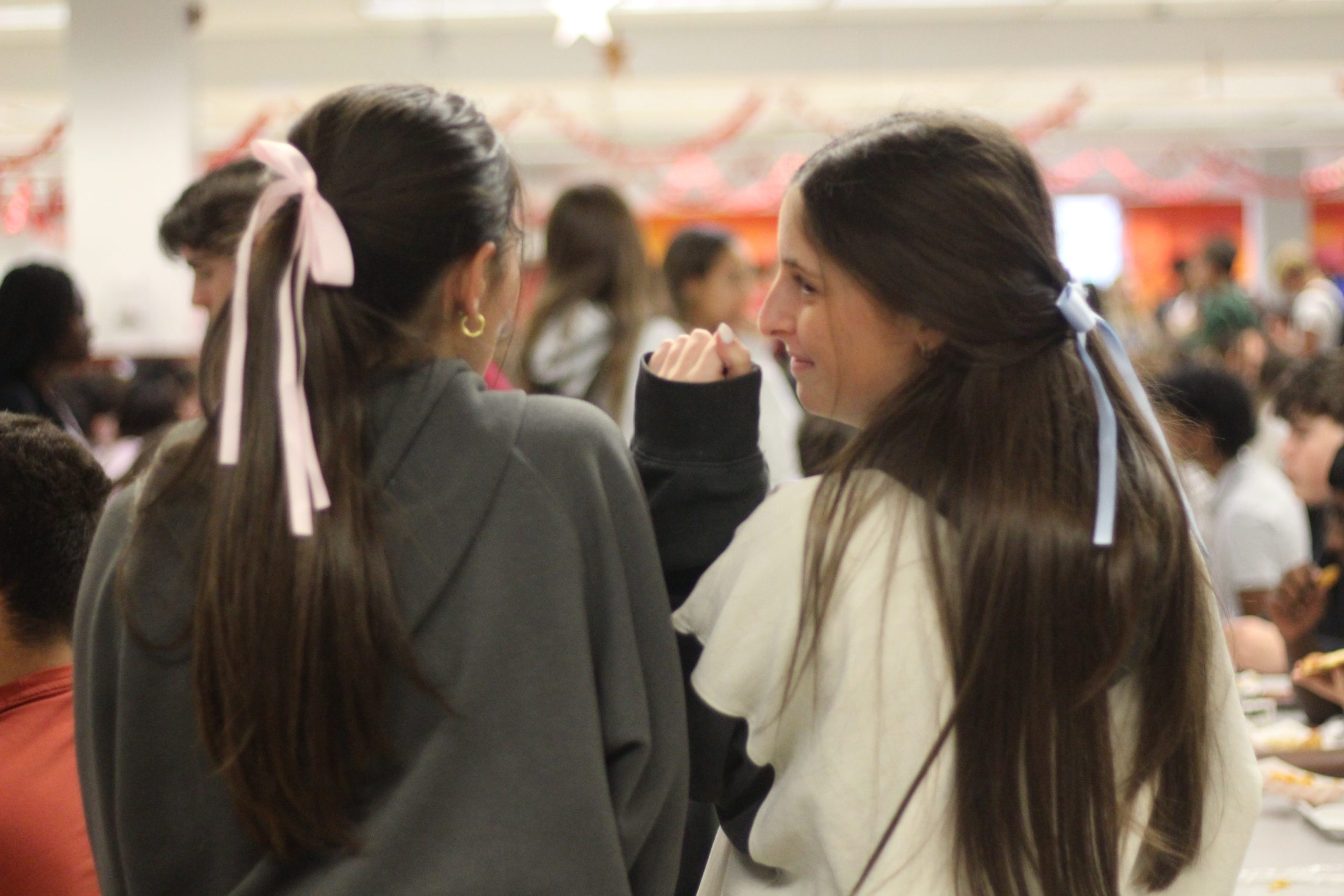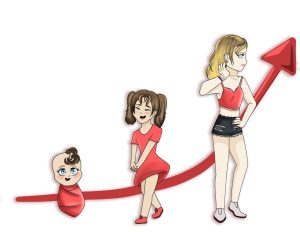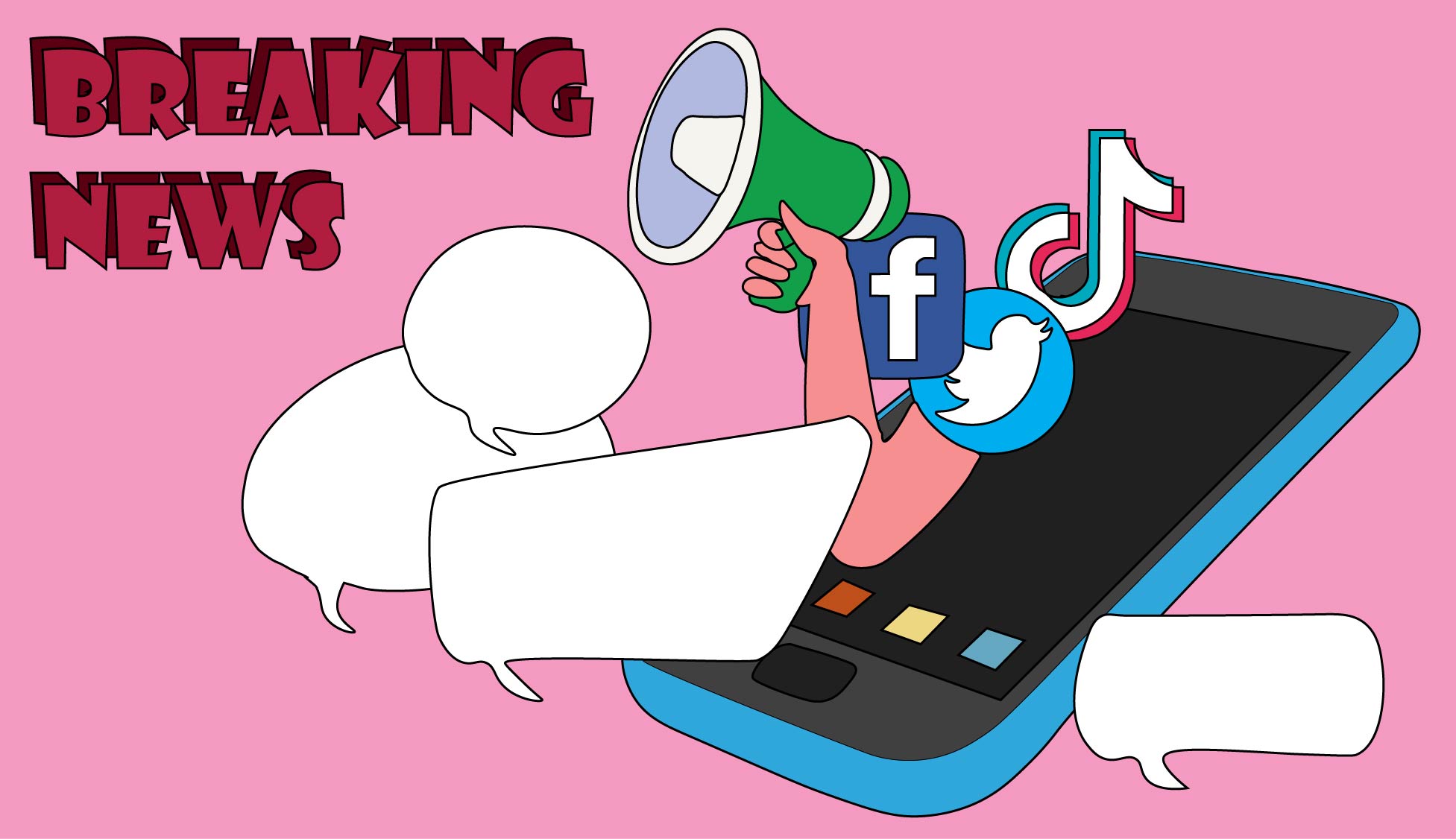Cancel culture becomes society’s prominent form of online public shaming
October 25, 2020
Cancellations are an aspect of daily life; television shows get canceled when they no longer bring in good ratings, plans get canceled when one or more parties can no longer attend and concerts get canceled when singers are feeling under the weather or are injured.
In the simplest sense, when something is canceled, it goes away. However, in recent years, the word “cancel” has had a serious rebranding. The term “cancel culture” has rapidly gained popularity amongst social media users and been accepted into the teen vernacular.
The phrase, first coined by Twitter users in 2017, refers to the popular practice of withdrawing support from specific celebrities, brands, companies or concepts after they have said or done something that is considered offensive.
The idea of “cancel culture” is claimed to have first originated on Tumblr blogs where fandoms would discuss their favorite stars’ imperfections. Over time, the term was passed on to Twitter, where it was used as a hashtag on a user’s post. The phrase became most well known during the height of the #MeToo movement, as actresses started to come out about the sexual harassment they endured from prominent male figures in Hollywood. The accused, such as disgraced producer Harvey Weinstein and comedian Louis C.K., were canceled as a result.
People can be canceled for a wide range of actions that include committing a crime, exhibiting racism, transphobia, xenophobia and homophobia, as well as engaging in cultural appropriation, religious intolerance, sexual harassment and the list goes on.
“There’s something that truly could be a mistake and others that have done things deliberately,” sophomore Alejandra Silva said. “When celebrities participate in cultural appropriation or do things that are offensive to other cultures and races, I believe that they should be canceled.”
Well-known singer R. Kelly is one celebrity that was canceled back in 2018 after his allegations of rape and sexual abuse toward minors were brought to light. Kelly, who is known for his R&B style, was accused of repeatedly sexually assaulting minors, with victims’ accounts going back to the 1990s.
A six-hour docuseries consisting of the stories of Kelly’s victims named “Surviving R. Kelly” was watched by millions of people and resulted in the immediate fallout of his career. Now, Kelly faces multiple federal and state charges for his crimes, as well as the loss of a large chunk of his fan base who now refuse to listen to his music.
In the age of social media, it has never been easier to get immediate access to just about anything with the touch of a button. If you want to search up a new recipe, connect with old friends, watch a makeup tutorial or learn how to fix a leaky pipe, chances are you can find it online with a simple search.
“I think that accessibility of social media makes it easier to cancel people because it aids in the diffusion of concepts, perceptions and stigmas,” sophomore Jason Choy said.
The web has been transformed into a breeding ground for constant hate, outrage and backlash. One quick thoughtless tweet can land you in some serious hot water and at the receiving end of a barrage of negative responses. Social media platforms make it easy to scrutinize every aspect of someone’s public and private life. From behind a screen, we can only see one side of the story, and if we don’t like that side, someone can be canceled.
“The internet has pros and cons. There can be a lot of unnecessary hate, but at the same time I’ve seen so many people bringing each other up and spreading positivity,” senior Josie Sotter said. “I’ve definitely seen an increase in both throughout the [COVID-19] pandemic, probably because people have been online more.”
Throughout the height of the COVID-19 pandemic, there has been a notable surge in the number of cancellations occurring. With users spending more time online, many went sleuthing through celebrities’ pasts until they found offensive tweets from years ago, pictures with blackface or inappropriate interactions with other people.
An example is talk show host Ellen DeGeneres, who upset the general public after allegations of her treatment towards her staff surfaced. Following these allegations, the Ellen Show announced that it would no longer remain on air. Cancel culture has proved itself to be a force to be reckoned with, as it has the power to decide the fate of someone’s career.
In the past, people would gossip to their friends; however with the power of social media, there is now an entire platform for exposing people and gaining likes and reactions from it.
“Public figures serve as an ideal common enemy and that the appeal of angry activities online is probably amplified by people’s frustration and misery in today’s environment,” Karen North, a Professor of Communication at the University of Southern California, said in a 2020 interview with Insider.
Cancel culture is often very fleeting as society’s attention is drawn elsewhere. By the time a celebrity apologizes for their actions, society has already switched their focus to someone else, deeming the previous action to be irrelevant and free from accountability. This cycle is one of the main reasons why some users consider cancel culture to be toxic.
“[It’s easier] to cancel people online because you have the safety of hiding behind a screen,” senior John Wilford said.
However, many believe that it is not inherently bad to call out those that need to rethink their previous statements or public stances on moral issues. Supporters view it as an important tool that should be utilized to achieve social justice. As a society, it seems as if people have taken it upon themselves to hold people accountable for their actions instead of letting them fly under the radar.
Popular online retailer Shein has recently come under fire after posting some questionable products to their site. The fast-fashion site based in China was called out for labeling Muslim prayer mats as home decor and describing them as “Flower Print Tassel Trim Carpets.” Only four days later, they began selling what was described on the site as a “Metal Swastika Pendant Necklace” for $2.50.
Multiple fashion influencers and shoppers were quick to notice the newly added necklace and raised awareness across Twitter and Instagram, where thousands of users expressed extreme disgust toward the company.
One Twitter user with the handle @ronitk_ commented, “This is actively threatening to the Jewish community. Do not let Shein get away with this.”
Well-known lifestyle influencer Nabela Noor also posted on her Instagram with over 1.6 million followers that she was “…so disgusted by Shein’s sheer ignorance and blatant disrespect towards other cultures and religions.”
Due to the backlash, Shein released an announcement explaining that the necklace was actually meant to serve as the Buddhist symbol for good fortune, not the Nazi symbol. Nonetheless, consumers have still banded together to boycott the brand.
In some cases, actors and other television personalities have had their projects axed as a result of something they said or did that was deemed to be offensive. Roseanne Barr, an actress and comedian who starred on the sitcom Roseanne, posted a racist tweet to Twitter in 2018. In light of this, ABC dropped the newly rebooted season of her show, condemning her values and announcing that the sitcom would not be renewed.
Most influencers make their money in a few main ways; the main one being that brands pay to be featured on their accounts based on how many followers a person has or the views they get, ensuring that their brand gets a lot of exposure. If an influencer’s fans were to boycott them, they would both lose followers and views, which hinders their ability to gain income.
“It’s a cultural boycott,” University of Michigan professor Lisa Nakamura said in an August 2020 interview with Insider. “It’s an agreement not to amplify, signal boost, give money to. People talk about the attention economy—when you deprive someone of your attention, you’re depriving them of a livelihood.”
Recently, TikTok has been a hot spot for cancel culture. Due to the short nature of TikTok videos, viewers only see a short snippet of what is taking place and may jump to a conclusion from it. Cancellation has only gotten worse throughout the COVID-19 pandemic; videos of influencers in public without a mask or not engaging in social distancing have automatically warranted a comment section filled with hate.
“On TikTok it’s easier to assume something without knowing the entirety of the situation,” Silva said. “You can see one thing, but the truth turns out to be something totally different.”
Famous TikTok personality Bryce Hall, who boasts over 13.6 million followers on the app, was rumored to be canceled after hosting a major house party in August during the global pandemic. COVID-19, which has already taken the lives of 1.08 million people globally, seemed to be of no issue to Hall, who continued with his 21st birthday party plans by inviting 100 plus friends to his mansion in Los Angeles, California.
In multiple pictures and video clips posted to social media, viewers could see that there was no social distancing between the attendees, with much fewer people wearing face masks. Many of his fans did not react well to this news and have since declared him canceled for making bad choices and for being a poor role model to his young fan base.
“It’s upsetting to see influencers think that they are above everyone else,” sophomore Olivia Alvarez said. “We are still in a pandemic and just because they may not get sick from it doesn’t mean that they can’t pass it to other people. The only way for this pandemic to end is if everyone takes it seriously.”
At the same time, online users need to consider how far cancellation should go. Should people be losing their jobs and homes because an internet mob deems something they’ve done to be controversial? Should those that are called-out contemplate suicide due to an insane level of cyberbullying and hate?
The trend of canceling people leads to bullying that evolves into something that is worse than the original calling out. It is easy for one minor, single call-out to snowball into a full-blown attack from the depths of the internet. Online users feed off of others’ negativity creating an environment filled with hate that can result in the called out individual being the target of cyberbullying, hate mail and even death threats.
Cancel culture falls into a gray area. When is society justified in the cancellation, and when do they take it too far?
“At what point are you doing it to bring awareness [to bigotry] and try to bring some positive impact and try to prevent it from being done again and at what point is it just bullying?” Sean D. Young, the Executive Director of the University of California Institute for Prediction Technology said in a August 2020 interview with Insider. “If you’re making claims with no proven information, and you’re making it just to gain an audience, then that would be more likely malicious intent.”
Cancel culture operates on a case by case basis in the sense that no cancellation is uniform. If some of the movies and artwork created in the past were produced today, there would definitely be controversy.
It can be argued that old content should not be deleted, it is a part of history and should be understood within the context of time period. If people used their lens of modernity when looking at art throughout history and canceled the pieces they decided were controversial, there would be barely anything left.
Yet, as the concept of cancellation continues to gain traction, the question has been raised: Is anyone ever really canceled?
The answer isn’t a clear yes or no.
From what has been seen, generally, the idea of cancellation is more socially performative than actually canceling someone.
One can look at YouTube star Logan Paul as an example. In December 2017 he received a lot of backlash after posting a video to the app that showed the remains of an apparent suicide victim in the Aokigahara forest in Japan. While Paul’s channel was taken off of YouTube’s Google Preferred Program, where brands sell ads on the platform’s top 5% of content creators, he was relatively untouched. As of early October 2020, his channel is still up and running; he creates videos, produces merchandise and has 22.4 million subscribers to his channel.
The fact of the matter is that cancellations are relative, as it is extremely difficult for something or someone to be completely and universally boycotted. Certain influencers, celebrities and brands boast millions upon millions of fans who will stick with them no matter what. As humans, every person views things through a different lens, so something that upsets one person could have no effect or even a positive effect on someone else.
“I’m on the fence when it comes to the idea of cancel culture,” Alvarez said. “I believe that it is necessary for society to hold people accountable for their actions because if we don’t no one will never feel like they need to do better.”
If people judged the offending individual called out based on their actions after the initial cancellation, society would give them time to rethink and respond. If people want to create real justice, normalizing a person changing their mind after learning new information could be a good place to start. Withdrawing all support for someone as they are actively trying to better themselves will continue to reinforce a cycle of toxic cancellations.
“Call-out culture can end up mirroring what the prison industrial complex teaches us about crime and punishment: to banish and dispose of individuals rather than to engage with them as people with complicated stories and histories,” author Asam Ahmad said in a 2020 interview with Forbes.
Cancel culture is a controversial aspect of society, particularly on social media, that can achieve amazing feats, yet sometimes fail to stick. As celebrities and everyday people alike use social media more as a way to publicly express their opinions and views, they become more at risk for cancellation.
This story was originally published in the October 2020 Eagle Eye print edition.

